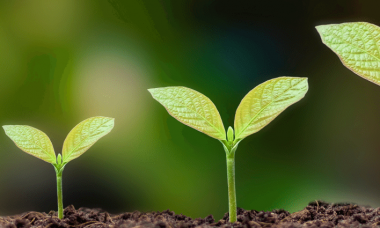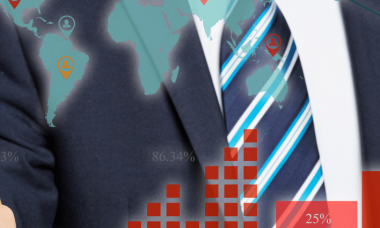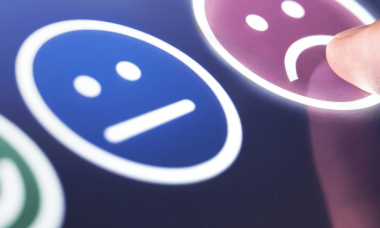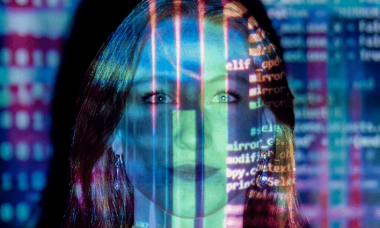Behavioural sciences are critical to the future of work
Our ability to understand, predict and support how and why humans think and behave the way we do, has surged in the last decade.
The comprehension of human biases and our apparent lack of logic and predictability in many given circumstances is becoming informed by a plethora of inter-related fields. Psychology, of course, but also economics, neuroscience, anthropology, linguistics – all enhanced by the evidence facilitated by computing, such as big data and artificial intelligence.
It turns out that our unpredictability is increasingly predictable and the most modern of techniques suggest that our basest primeval survival instincts are behind almost everything we do in any given situation. One of the four key behavioural traits, for example, is laziness. Any call to action that requires us to be proactive and change the existing status quo is likely to be an uphill struggle. This is a basic survival mechanism. Simply put, for most of human history, the easier something is to do, the fewer calories we burn, and the more likely we are to survive.
Taking this behavioural perspective offers us the opportunity to reduce risk in decision-making. It is encouraging to know that governments are at the forefront of the early adoption of this science, to deliver policy outcomes for the betterment of citizens and their communities. Examples now abound, including organ donor cards and pension savings. If people are to proactively register, then take-up is low. But if you are asked to proactively “opt out” and the contribution to pensions or donating organs is the default, then take-up is measurably higher. Singapore has used an “opt out” system since 1987 and 97% of its adult population are registered donors. 36% of the UK’s adults are “opted-in” organ donors.
Of course, the appeal of not making a decision that delivers the wrong outcomes – which occurs with surprising regularity – is compelling. But the ability to deliver more outcomes, more efficiently (and, ergo, for lower cost) is also irresistible. Rest assured, commercial organisations can harness this science too.
Humans are full of contradictions. We know more than ever about how certain diet and exercise choices will reduce our lifespan, and yet we’re becoming fatter and less fit than ever. Our species has less disease, pestilence, murder and more affluence, sanitation and lifespan than ever before. And yet, high levels of anxiety, stress and depression seem to be spreading throughout our species like a contagion.
Whilst some behavioural science terms sound like inaccessible academic mumbo jumbo, much of what the science is delivering is simply bringing common sense to the fore, at the expense of conventional wisdom. It doesn’t take a rocket scientist to guess that putting a pair of eyes on rubbish bins makes people feel subconsciously watched, so they behave better and put more rubbish in the bins. Or that changing the colour of “buy now” buttons in online pages can increase sales, or that addressing someone by their name in text messages or letters increases engagement, or that comparing your home’s energy consumption to your neighbours prompts changes in behaviour. But we now have proof of these techniques and biases. Knowing how to improve communication and be more efficient is good for everyone.
A plethora of information is now immediately available through our smartphones and wearable devices. This isn’t frightening: it helps you to know that it’s about to rain when you leave the house, it lets you know how sedentary you’re being. It helps to dispel ridiculous exaggerations spouted as “facts” by the pub bore. However, it does come at a cost. We cannot help but check sporting scores, weather, emails, news and texts whenever we have a spare moment. We stop at traffic lights or go to the toilet…and our hands reflexively reach for our smartphone. The consequence of this? We aren’t giving our brains a second to relax and untangle and our ability to respond appropriately to any given situation is compromised.
We now know that meditation and mindfulness are not the “hippy-trips” that they may have seemed. There is irrefutable evidence that such moments to stop, breathe and calm the mind are absolutely essential in allowing us to cope and excel in this faster-paced world.
So, what are we doing to make best use of this knowledge? Well, we now understand which individuals are not really trying to get a job, why, and what we can do about it. We can predict who will drop out of education courses or apprenticeships early and inform mentors how to better engage with those students.
Behavioural sciences at ReadyTech
At Esher House and ReadyTech, we are at the forefront of harnessing the behavioural sciences to support stakeholders in the education and employment spaces. This apparently “disruptive” use of analytics, data and mechanised assessments has the potential to free us up to be more human.
The Indonesian Government’s social services and manpower departments held a conference in February 2018 to review adopting such economics and technologies to “humanise human beings” with the techniques. And we can already evidence this aim by huge reductions in staff attrition in those using our behavioural science tools. We know how to provide the right interventions to support the right people at the right time.
So, this is a period of immense optimism. But we must remember to take a moment for ourselves. We must use the tools we now have available to us to realise efficiencies and free-up time to enable us to interact with each other, in person, more. There is nothing that builds resilience and wellbeing more than simply interacting with and being nice to other humans. Not artificial numbers in a bank balance. We are, above all else, social animals.






